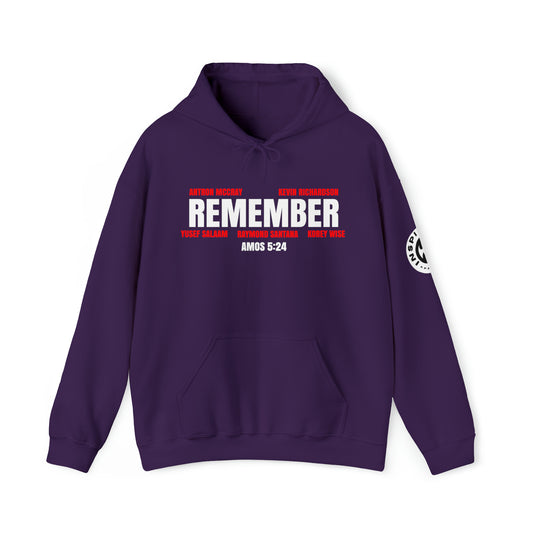The Central Park Five Collection
Freedom in Fabric: Crafted from premium, ultra-soft materials, our apparel provides comfort that mirrors the warmth of solidarity and the courage to stand against injustice. Wear it with pride and purpose.
Embrace the Story: Each piece in this collection highlights the journey of the Central Park Five – Raymond Santana, Kevin Richardson, Antron McCray, Yusef Salaam, and Korey Wise. Their story serves as a reminder that strength can emerge from the darkest of times.
Classic Style, Timeless Message: Our T-shirts, hoodies, and sweatshirts come in a variety of colors and designs, ensuring there's a perfect fit for everyone who wants to support the cause and remember this pivotal moment in history.
A Beacon of Hope: By wearing this collection, you become part of a community that believes in justice and equality for all. Your purchase helps support organizations dedicated to criminal justice reform and the rights of the wrongfully convicted.
Join the Movement: Wear these garments with pride, and let them spark conversations about the importance of perseverance, justice, and unity. Share your thoughts and stories on social media using #CentralParkFiveMemorial, and let your voice be heard.
Together, We Shine Bright: The Central Park Five Memorial Collection is more than clothing; it's a beacon of hope, a symbol of change, and a testament to the strength of the human spirit. Let's honor the past, embrace the present, and build a brighter future together.
Antron McCray, Kevin Richardson, Yusef Salaam, Raymond Santana, and Korey Wise (known as the Central Park Five)—were wrongly convicted of the assault and rape of Trisha Meili, a woman in Central Park in Manhattan, New York, on April 19, 1989. More than a decade after the attack, while incarcerated for attacking five other women in 1989, serial rapist Matias Reyes confessed to the Meili assault and claimed he was the only actor; DNA evidence confirmed his involvement. The convictions against McCray, Richardson, Salaam, Santana, and Wise were vacated in 2002. From the outset the case was a topic of national interest. Initially, it fueled public discourse about New York City's perceived lawlessness, criminal behavior by youths, and violence toward women. After the exonerations, the case became a prominent example of racial profiling, discrimination, and inequality in the legal system and the media. All five defendants sued the City of New York for malicious prosecution, racial discrimination, and emotional distress; the city settled the suit in 2014 for $41 million. Wear this and rep the need for justice and equality for all.




